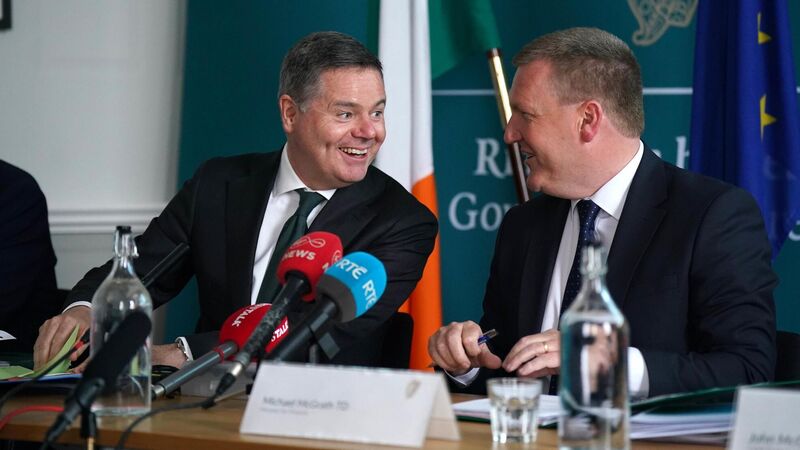The moral of the century-old ditty ‘I’ve Got Sixpence, Jolly, Jolly Sixpence’ was that if the singer was too profligate with loaning and spending then there would not be enough left for family upkeep.
Perhaps this was what Paschal Donohoe, the Minister for Public Expenditure, had in mind when he said Budget 2024 will be “big” while he and Finance Minister Michael McGrath remain cautious about managing the public finances prudently.
Already a subscriber? Sign in
You have reached your article limit.
Subscribe to access all of the Irish Examiner.
Annual €130 €80
Best value
Monthly €12€6 / month
Introductory offers for new customers. Annual billed once for first year. Renews at €130. Monthly initial discount (first 3 months) billed monthly, then €12 a month. Ts&Cs apply.
CONNECT WITH US TODAY
Be the first to know the latest news and updates

















